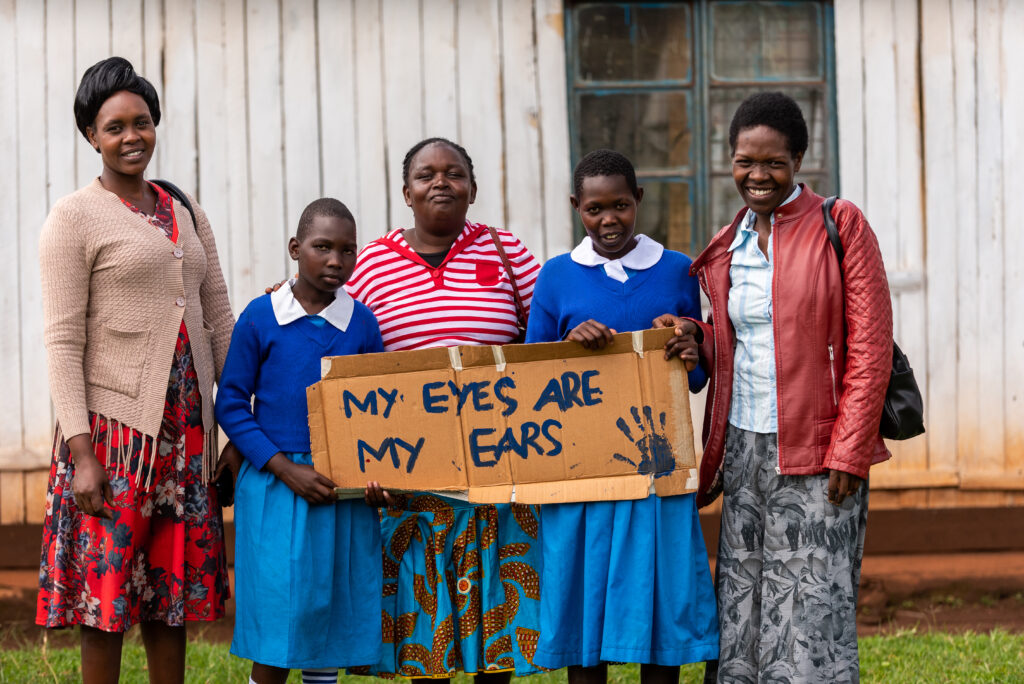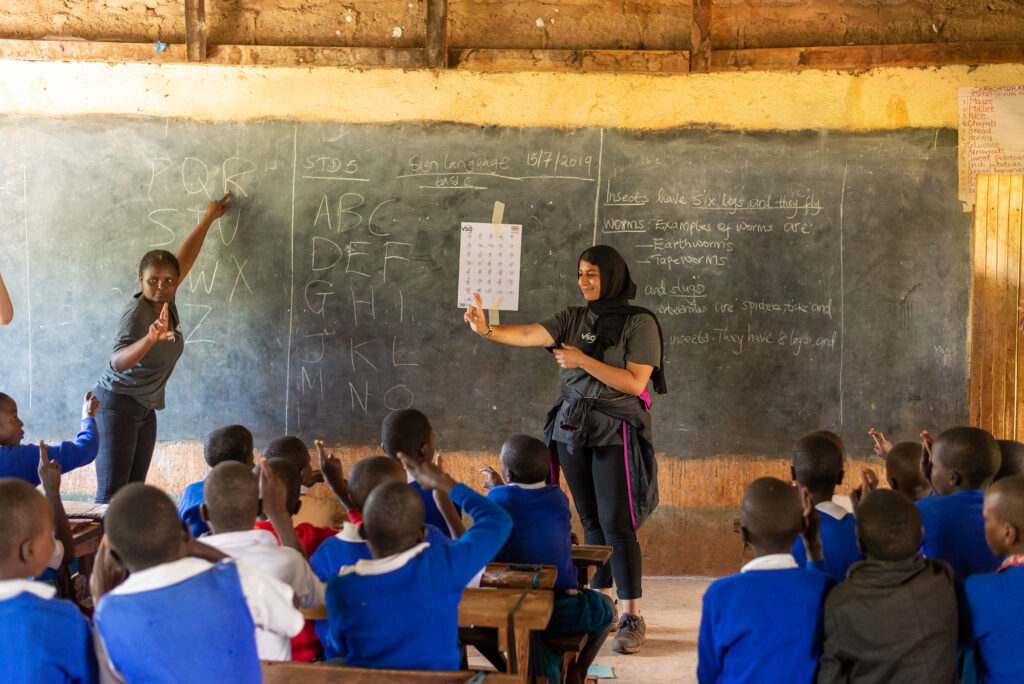By Emma Guilfoyle, Volunteer Journey and Inclusion Advisor with VSO
A volunteering placement can provide a once in a lifetime opportunity to
discover a different culture and make a positive difference to communities
overseas.
Volunteering overseas has become a popular choice for young people in the UK in recent years – whether after school, over a long university summer, or as a new and exciting challenge between jobs. And what’s more, it’s well
evidenced that volunteers who work overseas develop personally, increasing their confidence, leadership and other important life skills.
For disabled people however, travelling abroad to live and work in a totally different environment and culture can often present intimidating barriers that appear difficult to overcome. At Voluntary Service Overseas (VSO), we know that shouldn’t be the case. Through our International Citizen Service (ICS) programme, we’ve proven not only that disability should not prevent someone from taking part in this fantastic opportunity, but equally, that the experience is enhanced for everyone when people from all kinds of backgrounds and experiences take part.
ICS is a scheme funded by the UK Government’s Department for International Development through which young people aged 18 to 25 can spend three months volunteering in Africa or Asia, contributing to projects supporting the education, livelihoods and health of some of the poorest communities in the world.

Motivation
Since it started in 2011, we’ve invested in ensuring the programme is accessible to young people from all backgrounds. The scheme starts from the principle that volunteers don’t need specific skills or knowledge to participate, only that they have the motivation, passion and values to contribute to positive change. We believe that with those qualities, all volunteers, regardless of their background and experience, will gain hugely from the cultural exchange and shared challenge that ICS is all about.
That was certainly the experience of James Woods, from Hassocks in Sussex, who spent three months volunteering in Tanzania in 2018. James was born with Erb’s palsy, a condition which affects arm movement. While he admits to initially being nervous about applying to ICS, it’s a decision he doesn’t regret.
“Before going to Tanzania, I didn’t know what to expect, and I was a bit
socially anxious”, explains James. “I’d never done any volunteering or
organised activities like the Duke of Edinburgh’s Award before. In part, I
wasn’t sure about my ability to adapt due to my disability, but ICS has proven I can.”

Support and training
At ICS we provide tailored, one-to-one support and training for all volunteers right from the point of application. This allows us to anticipate any particular needs that individuals might have, all the way through their volunteering journey. While overseas, team leaders are supported by experienced staff who are in place to make the adaptations needed
to ensure that everyone can contribute and reach their potential.
For James, the placement proved to be a huge confidence boost. “Before ICS I never talked about social issues or considered development topics. But ICS
has made me more of an active citizen. The programme has brought out a lot more confidence in me.”
This newfound confidence has also helped James in the job market, where he now works as an aviation analyst. “Before my placement, I always felt like I was fluffing the application, but now I feel like I have some genuine points to talk about: organisation, leadership and teamwork.”
But our experience of working with disabled volunteers like James is that they not only reap huge benefits from taking part themselves, but that their voice, knowledge and experience also improves the quality of our projects for all. Everyone’s experience is enriched when disabled people take part – that includes other volunteers, and the communities we work to support as well.
Take our project in Nandi County, Kenya, which aims to tackle the challenges and stigma faced by Deaf young people. By pairing up Deaf volunteers from the UK and Kenya, the project facilitates shared learning and a valuable exchange of experiences.
Raabia Hussain, a Deaf volunteer from Greater Manchester, joined Kenyan volunteers on the project in 2019. Despite coming from very different backgrounds, they found they had much in common and could combine their ideas and expertise to drive the project forward.
“I’ve learnt so many things,” said Raabia after finishing the placement, “and it’s been brilliant to have both UK and Kenyans in the team, learning from each other’s cultures. It’s so important to use young volunteers because it can have an impact on our learning and we can pass it back to people
in the UK.”
As a successful filmmaker, Raabia was also a role model for the Deaf young people the volunteers were supporting to explore employment and entrepreneurship opportunities. “Your work can help make a difference and your disability can empower people that have a similar disability to you,” she adds.
We are proud that ICS is committed to ensuring that everyone, no matter their identity, has the opportunity to access their rights and opportunities, to realise their potential and support our work to tackle poverty and marginalisation. Volunteering is most definitely for everyone, and everyone benefits when disabled people volunteer.
Currently ICS is temporarily on hold due to global travel restrictions as a result of the coronavirus pandemic. We are committed to resuming the scheme whenever it is deemed safe for international travel to resume. ICS will continue to review the situation in the countries where we run programmes, according to World Health Organisation and national government advice.
To find out more about ICS visit: www.volunteerics.org
Images: Paul Wambugu/VSO



